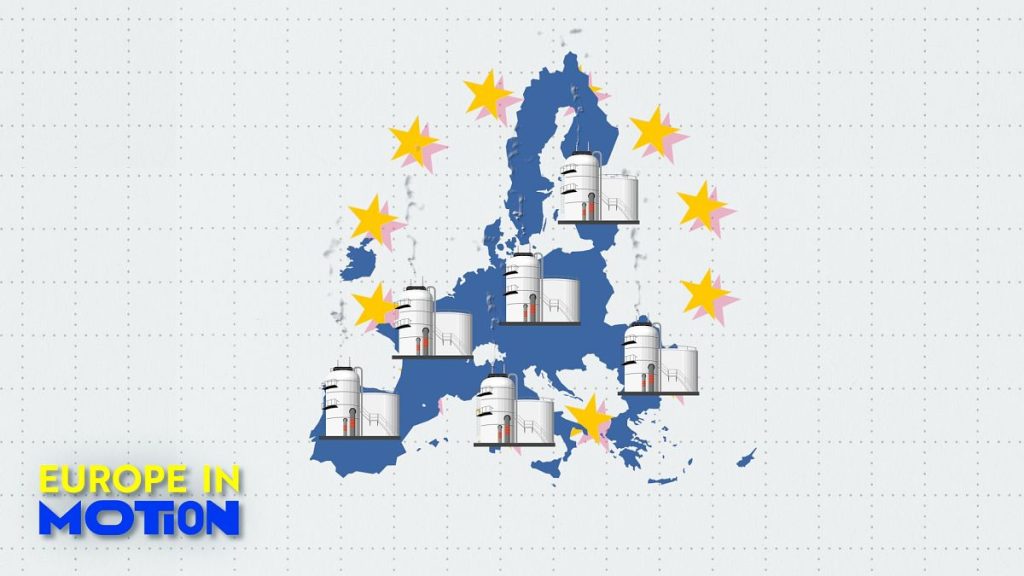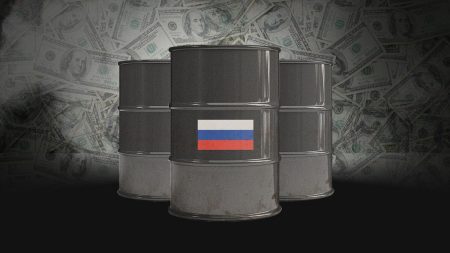The European Union’s gas supply security is facing a complex and evolving situation as the bloc navigates the fallout of Russia’s invasion of Ukraine and the subsequent disruption of traditional energy flows. While the European Commission has offered assurances about the stability of gas supplies, the data reveals a more nuanced picture. Current gas storage levels are significantly lower than at the start of 2023, raising concerns about the EU’s preparedness for the winter months. This decline in reserves is compounded by the complete cessation of Russian gas transit through Ukraine, a route that historically provided a substantial portion of the EU’s gas needs. The situation underscores the challenges the EU faces in diversifying its energy sources and ensuring a reliable and affordable supply of gas to its member states.
The distribution of gas storage across the EU reveals significant disparities between member states. Portugal stands out with storage levels exceeding 100% of capacity, followed by Sweden and Poland with relatively healthy reserves. However, this seemingly positive picture for Portugal is tempered by the fact that it possesses one of the smallest overall gas storage capacities in the EU. At the other end of the spectrum, countries like the Netherlands, Croatia, and France are grappling with significantly lower storage levels, hovering around 50%. This uneven distribution highlights the vulnerability of certain member states to potential supply disruptions and underscores the need for enhanced cooperation and resource sharing within the EU. While the overall EU storage level is slightly above the historical average for this time of year, the considerable drop from the previous year emphasizes the impact of geopolitical tensions and the urgency of securing alternative gas sources.
The European Commission’s assertion of gas supply security rests on the diversification of supply routes and the strategic use of stored gas. While alternative routes through Germany and Italy have helped mitigate the impact of the Ukrainian transit shutdown, the reliance on storage withdrawals raises questions about the long-term sustainability of this approach. The EU’s ability to maintain adequate gas supply throughout the winter will depend on a multitude of factors, including weather conditions, the success of diversification efforts, and the stability of global energy markets. The situation requires careful monitoring and proactive measures to prevent potential shortages and price volatility.
The suspension of Russian gas transit through Ukraine has not only impacted overall supply but has also exposed deep divisions within the EU regarding energy policy and relations with Russia. Slovakia, Hungary, and Austria, countries historically heavily reliant on Russian gas via the Ukrainian transit route, now face difficult choices in balancing their energy needs with the geopolitical realities of the war in Ukraine. The differing stances among member states on energy security and relations with Russia present a significant challenge to the EU’s efforts to present a united front in the face of external pressures.
Slovakia’s vocal criticism of Ukraine’s decision not to renew the transit contract exemplifies the tensions within the bloc. Prime Minister Robert Fico’s accusations that Ukraine’s decision is more harmful to the EU than to Russia reflect a perspective that prioritizes immediate energy security over broader geopolitical considerations. Fico’s threats to retaliate against Ukraine by cutting electricity flows and reducing aid for Ukrainian refugees further exacerbate the tensions and demonstrate the potential for energy security issues to become intertwined with other complex political and humanitarian concerns. This discord within the EU underscores the difficulty of achieving a cohesive and effective response to the ongoing energy crisis.
The overall gas supply situation in the EU remains precarious and demands a multifaceted approach. While short-term measures like diversifying supply routes and utilizing existing storage are crucial, the long-term solution lies in a fundamental shift towards sustainable and diversified energy sources. This transition requires substantial investments in renewable energy infrastructure, enhanced energy efficiency measures, and increased cooperation among member states to ensure a secure and affordable energy future for the entire bloc. The ongoing situation serves as a stark reminder of the interconnectedness of energy security, geopolitics, and the need for a unified and forward-looking energy policy within the European Union. The coming months will be critical in determining the EU’s ability to navigate these challenges and secure a stable energy future.










